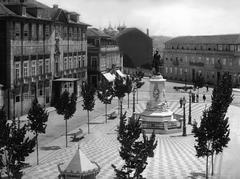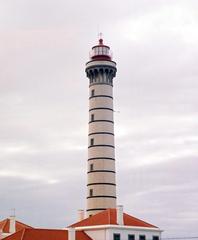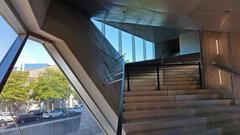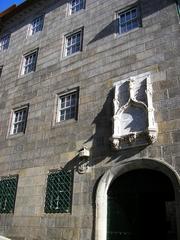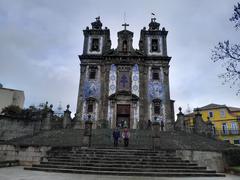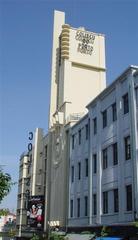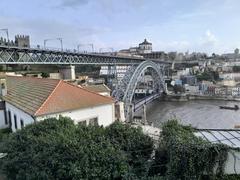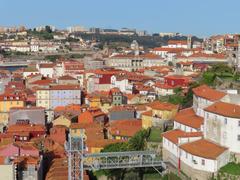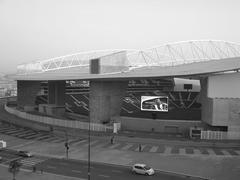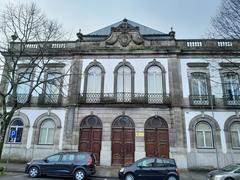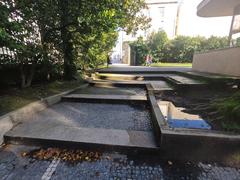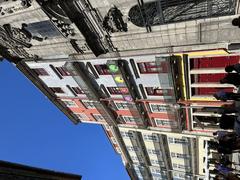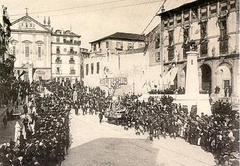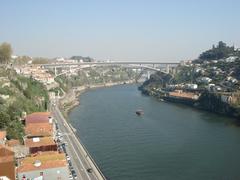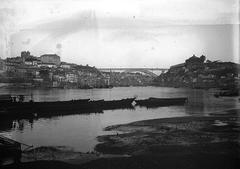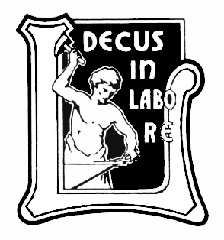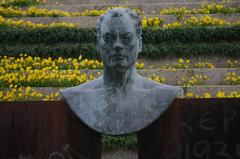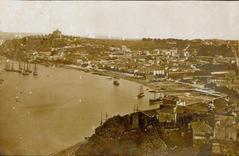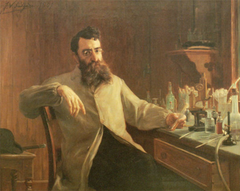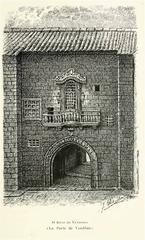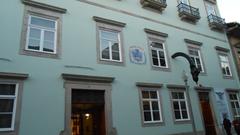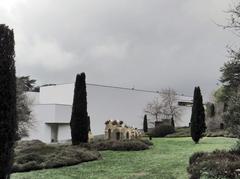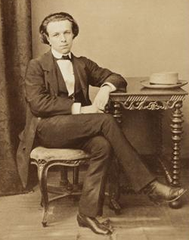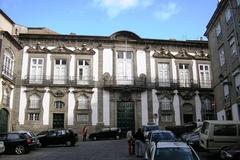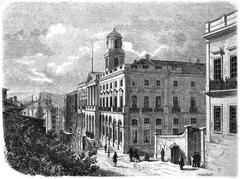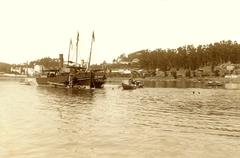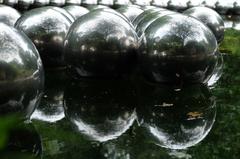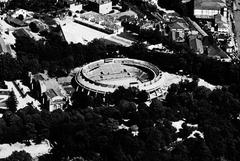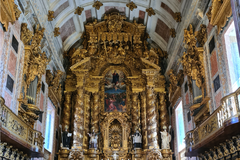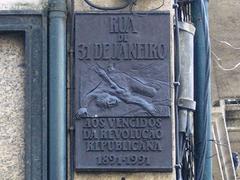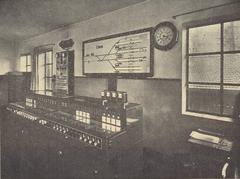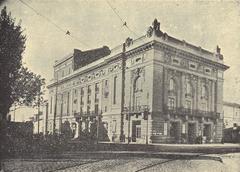Planetário do Porto Visiting Hours, Tickets, and Guide to Porto Historical Sites
Date: 04/07/2025
Introduction: Planetário do Porto – Where Science Meets Culture
Nestled within Porto’s dynamic urban landscape, the Planetário do Porto – Centro Ciência Viva is a flagship venue for astronomy, science education, and public engagement. Since its establishment in the late 20th century, the planetarium has evolved into an essential destination for families, students, science enthusiasts, and travelers seeking to enrich their cultural itinerary. With its immersive digital dome theater, expert-led programming, and proximity to some of Porto’s most iconic historical sites, the Planetário do Porto offers a unique blend of scientific discovery and local heritage. This comprehensive guide provides up-to-date information on visiting hours, ticketing, accessibility, and nearby attractions, helping you plan a memorable visit. For real-time updates, always refer to the official website.
Table of Contents
- History and Evolution
- Visiting Information
- Programs and Unique Features
- Architecture and Location
- Accessibility
- Getting There
- Nearby Historical Sites
- Visitor Tips
- Frequently Asked Questions
- Conclusion and Resources
History and Evolution
Origins and Mission
The Planetário do Porto was envisioned in the late 1980s by Professor Teresa Lago, a renowned astrophysicist and former director of the Centro de Astrofísica da Universidade do Porto (CAUP). Conceived as both a scientific research hub and a public education center, it was designed to foster scientific literacy and curiosity among the broader community (Wikipedia, Planetário do Porto – Sobre Nós).
Construction and Milestones
After a decade of planning, the Porto City Council acquired a Carl Zeiss star projector in the early 1990s. The planetarium building, designed by architect José Manuel Soares, was completed in 1997 and officially opened to the public in November 1998. It initially functioned under a partnership between the city council and the University of Porto (Wikipedia).
Technological Advancements
The original Zeiss projector could simulate 6,000 stars across both hemispheres. In 2014, the facility underwent a significant technological upgrade, replacing the optomechanical system with Portugal’s largest digital fulldome projection system, greatly enhancing the immersive experience (Atlas Obscura).
Integration and Network
Since 2013, the planetarium has been managed by the University of Porto and CAUP. It is a founding member of the Rede de Centros Ciência Viva, Portugal’s national science outreach network, reinforcing its role as a leader in public science education.
Visiting Information
Opening Hours
- Tuesday to Sunday: 10:00 AM – 6:00 PM
- Closed: Mondays and major public holidays
- Special Events: Evening hours for select programs (check the official schedule)
Ticket Prices
- Adults: €5–€7 (varies by session type)
- Seniors/Students: €3–€5
- Children under 6: Free
- Family Packages: Available for discounted rates
- Group Discounts: Offered for school and organized groups
Tickets can be purchased online (BOL – Bilheteira Online) or at the entrance. Advance booking is strongly recommended for dome shows and special events, especially during weekends and holidays.
Programs and Unique Features
Immersive Dome Theater
The planetarium’s 93-seat dome theater delivers high-definition journeys through the cosmos, led by professional astronomers. Popular shows include “Buracos Negros Supermassivos,” “O Sol, a nossa estrela,” and family-friendly interactive sessions (BOL).
Educational Outreach
Since 1990, CAUP’s portable planetarium has brought astronomy experiences to over 250,000 children across Portugal, supporting nationwide science education (Planetário do Porto – Sobre Nós).
Special Events
- Monthly Stargazing: “Mais Perto das Estrelas” on the second Thursday of each month (Planetário do Porto – Eventos)
- AstroGeoFest: Annual festival celebrating minerals, fossils, and meteorites, with interactive activities and a market (AstroGeoFest)
- Scientific Lectures: Featuring leading scientists, including Nobel Laureate Michel Mayor in 2025
Workshops and Interactive Science
Hands-on workshops for families and students explore topics such as meteorites, planetary geology, and evolution. All activities are designed to be engaging and age-appropriate (Planetário do Porto – Eventos).
Architecture and Location
Designed by José Manuel Soares, the modern facility is located at Rua das Estrelas, 4150-762 Porto, on the University of Porto’s Polo III campus. The building’s design supports a variety of public and educational events, with state-of-the-art projection, laboratories, an auditorium, and a gift shop (City Guide Porto).

Alt text: Interior dome theater of Planetário do Porto showing immersive star projection.
Accessibility
The Planetário do Porto is fully accessible, with ramps, elevators, and adapted restrooms. Reserved seating is available in the dome theater for visitors with reduced mobility. Special accommodations (e.g., for sensory sensitivities) can be arranged in advance (cienciaviva.pt).
Getting There
- Metro: Casa da Música station (approx. 20-minute walk)
- Bus: Several lines connect to Rua das Estrelas (see STCP)
- Taxi/Ride-share: Easily available throughout Porto
- Car: Limited on-site and street parking nearby
Nearby Historical Sites
Enrich your visit by exploring these nearby cultural and historical attractions:
- Porto Botanical Garden: A tranquil retreat with diverse plant collections
- Tram Museum: Experience Porto’s transit history
- Casa da Música: Modern concert hall and architectural icon
- Museu de Serralves: Contemporary art museum set in a beautiful park
- Ribeira District: Historic riverside quarter with UNESCO World Heritage status
- Jardins do Palácio de Cristal: Scenic gardens with city views
For more ideas, consult Porto-North-Portugal.com.
Visitor Tips
- Arrive Early: Recommended to arrive 15 minutes before your session
- Language: Most programs are in Portuguese; inquire about English-language options when booking
- Photography: Not permitted during dome shows
- Weather: Dress appropriately for evening or outdoor events
- Health & Safety: Hygiene protocols are in place; check for current COVID-19 guidelines
Frequently Asked Questions
Q: What are the Planetário do Porto visiting hours?
A: Tuesday to Sunday, 10:00 AM – 6:00 PM. Closed Mondays. Evening sessions available for special events.
Q: How much do tickets cost?
A: Adults €5–€7, seniors/students €3–€5, free for children under 6. Family and group discounts available.
Q: Is the planetarium accessible?
A: Yes, it is fully accessible with ramps, elevators, and adapted facilities.
Q: Are shows available in English?
A: Some shows and lectures are in English or have subtitles; confirm when booking.
Q: Can I bring children?
A: Absolutely. There are dedicated programs for children and families.
Q: How do I buy tickets?
A: Online via BOL or at the entrance. Advance booking is recommended.
Conclusion and Resources
The Planetário do Porto stands out as a top science attraction, combining cutting-edge technology, expert programming, and a strong commitment to education. Its integration into Porto’s cultural landscape and proximity to historical sites make it an ideal stop for visitors of all ages. Plan ahead by checking current schedules and ticket options on the official website, and consider downloading the Audiala app for guided tours and updates.
Sources
- Planetário do Porto – Centro Ciência Viva – Sobre Nós (planetario.up.pt)
- Planetário do Porto – Eventos (planetario.up.pt)
- Wikipedia contributors. Planetário do Porto - Centro Ciência Viva (Wikipedia)
- Atlas Obscura. Planetário do Porto (Atlas Obscura)
- City Guide Porto. Porto Planetarium & Health Research Centre (City Guide Porto)
- All About Portugal. SEA LIFE Porto, World of Discoveries, Jardins do Palácio de Cristal (All About Portugal)
- Time Out Porto. Planetário do Porto (Time Out Porto)
- BOL – Bilheteira Online. Planetário do Porto Tickets (BOL)
- Porto-North-Portugal.com. Porto Attractions and Sights (Porto-North-Portugal.com)
- Rede de Centros Ciência Viva (cienciaviva.pt)
